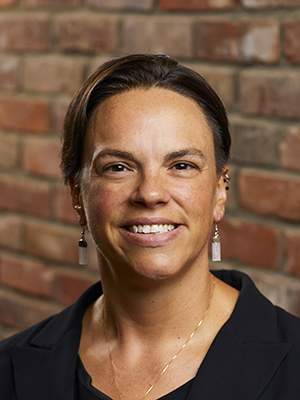Field Notes is a series of TIP Strategies interviews with leaders across the country exploring pressing economic, workforce, and community development issues.
In March 2021, the Indianapolis Metropolitan Planning Organization (IMPO) engaged TIP to develop a five-year comprehensive economic development strategy (CEDS) for the eight-county Central Indiana region. Earlier this year, we asked Rose Scovel, principal planner with the IMPO, to share her thoughts on the planning process and progress made on the plan’s implementation. We were delighted to learn that the Central Indiana CEDS received a Hoosier Planning Award in May 2023. Established by the Indiana Chapter of the American Planning Association, the award recognizes professional excellence and outstanding examples of urban planning.
Q1. The Greater Indianapolis region has a number of outstanding economic, community, and workforce development organizations. How did the IMPO come to take on the CEDS on behalf of the region?
The Indy Partnership, the regional economic development organization housed within the Indy Chamber, led Central Indiana’s 2015 CEDS planning effort. However, during that process, they discovered they may not be the right organization long term to carry it forward. While hosting stakeholder conversations for the agency’s strategic plan in 2017 and 2018, there was interest in the IMPO expanding beyond transportation into spaces that are affected by transportation, and that transportation affects, and where there isn’t a regional partner who can take on the required roles: convene, inform, plan, and fund. Updating the region’s CEDS, with the Indy Partnership as a stakeholder at the table, was an example. Following the IMPO strategic plan’s adoption in August 2018, we began seeking funding for an updated Central Indiana CEDS. We secured funding in 2020 and selected TIP Strategies in 2021, with the CEDS being adopted in May 2022.
Q2. Early in the process, the Comprehensive Economic Development Strategy Committee (Strategy Committee) identified a number of core values for the CEDS. What are these values, and why are they an important component of the CEDS?
The guiding principles—partnerships and regional alignment, equitable growth, recovery and resiliency, and connectivity—were woven throughout the CEDS. Central Indiana has wrestled with regionalism for decades despite frequent cross-sector collaborations. To live up to our potential as a region, we need a coordinated story of who we are. Equity had already been the focus of work in Indianapolis for a few years. But with the CEDS planning process happening at the peak of the COVID-19 pandemic and related racial tensions, it was deemed too important to be confined to a single goal area. While Central Indiana has been fairly resilient in previous downturns, the COVID-19 recession dealt a significant blow to the region’s tourism-related workforce, greatly affecting lower wage and minoritized populations. Resilience remains a future concern for other sectors, like distribution and logistics, which faces threats from the shift to robotic labor as well as from weather events, like tornados, flooding, and drought, which are regular threats to the region. As the “Crossroads of America,” connectivity is the thread that weaves Central Indiana together and to the rest of the country. Whether roads, rail, rivers, or broadband, we are dependent on connectivity to support the region’s strategic position.
Q3. The EDA requires the CEDS to address economic resilience. How did the Steering Committee approach resilience in the CEDS?
Resilience was included in each goal area: talent, business, and connectivity. We need a resilient workforce as the pace of economic change accelerates. This means multiple career pathways and educational pathways, as well as the ability to shift between industries as the economy changes. Continuing to diversify our business base and the mix of small, medium, and large employers is important for resilience. Large employers can bring stability and investment; Central Indiana wouldn’t be on the map without them. But there’s downside risk to large employers, so a robust network of firms, including small businesses and entrepreneurial enterprises, is critical to resilience. Just as redundancy in our electric, water, and communications infrastructure is critical to our ability to withstand disruption, so is the ability to offer a broad range of frequent, reliable transportation choices.
Q4. Consensus building is one of the most challenging aspects of the CEDS planning process. Do you have any advice for other regions with diverse stakeholders and communities?
Start early. Have one-on-one conversations early. We met with public, private, philanthropic, and university stakeholders for nearly a year while we were securing funding to talk through issues related to the prior CEDS and to discuss the region’s ongoing challenges, the opportunity a CEDS could provide, and the IMPO’s role in the effort. These conversations continued during the process, sometimes following up on issues raised in Strategy Committee meetings that were not appropriate for a large forum. We went to each county commissioner three times: once for a commitment to participate, once as an update on the plan’s general framework, and once for adoption consideration. In some cases, we met with staff or commissioners ahead of time to address questions. Have the difficult conversations. Know that you won’t always get what you want.
Q5. How is the implementation process going?
The IMPO has been convening implementation committees for nearly a year. Following a joint kickoff meeting in summer 2022, we formed separate committees for talent, innovation, and place (the three goal areas) which meet every other month online. Each session has included a speaker on a topic of interest and has generated fantastic conversations and relationships. The annual meeting, held in May, was anchored by a panel on connecting transportation and economic development, featuring speakers from across the region. The in-person event helped build momentum as implementation moved into its second year, by providing the opportunity to relay success stories, share relevant data, and continue the conversation about moving forward. In some ways, the work of the IMPO is in convening and sharing information about the great work that is already being done across Central Indiana. In addition to supporting our partners in the plan’s implementation, we are also doing some of the work with our regional activity centers update, trail-oriented development plan, active transportation plan, and transportation funding.




